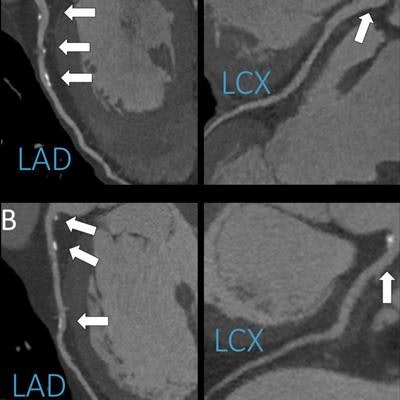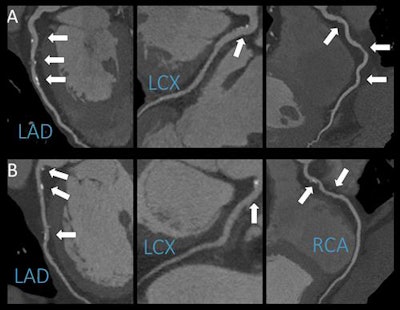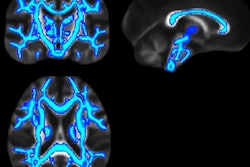
CHICAGO - Having an alcoholic drink once or twice a day does not appear to affect the coronary arteries, researchers reported on Tuesday at the RSNA annual meeting.
The group used coronary CT angiography (CCTA) to observe the arteries of patients with suspected coronary artery disease. There was no association between light to moderate alcohol consumption and such disease, concluded Dr. Júlia Karády from Semmelweis University in Budapest and colleagues.
"CCTA is an excellent diagnostic modality to noninvasively depict the coronary wall and identify atherosclerotic lesions," Karády said. "Furthermore, we're able to characterize plaques and differentiate between several types. Prior studies used cardiovascular risk factors -- like high cholesterol levels -- and cardiovascular outcomes to study the effects of alcohol, but our study is unique in that we analyzed both drinkers and nondrinkers using CCTA, which may shed some light on how alcohol may or may not contribute to the development of fatty plaques in the arteries of the heart."
The researchers defined light to moderate drinking as 14 units per week of beer, wine, or spirits. One unit translates to approximately 6.8 fluid ounces (201 mL) of beer, 3.4 ounces of wine (101 mL), or 1.35 ounces (40 mL) of hard liquor.
 CCTA of a patient who reported no alcohol consumption (panel A) and of a patient who reported moderate alcohol consumption (panel B). The age- and gender-matched patients display the same extent and severity of coronary artery disease. Image courtesy of RSNA.
CCTA of a patient who reported no alcohol consumption (panel A) and of a patient who reported moderate alcohol consumption (panel B). The age- and gender-matched patients display the same extent and severity of coronary artery disease. Image courtesy of RSNA.Previous studies have suggested that light alcohol consumption may actually reduce the risk of coronary artery disease, but Karády said their study did not show that alcohol consumption had a protective effect.
The researchers asked the 1,925 participants in the study about the amount and type of alcohol they regularly consumed. Karády and colleagues then compared this information with the presence of coronary plaques found at CCTA.
"About 40% of our patients reported regular alcohol consumption, with a median of 6.7 alcohol units consumed weekly," she said. The research team is expanding the study to include more patients and perform further analyses, she added.
"The amount of alcohol suggested as light to moderate is really even less than two standard drinks a day," Dr. Suzanne Steinbaum told AuntMinnie.com in a comment on the study. "Beer usually comes in 12-ounce cans, and certainly in New York City we get more than 3.4 ounces of wine with a glass at a restaurant or bar." Steinbaum is a cardiologist and director of Women's Heart Health at Lenox Hill Hospital in New York City.
Steinbaum said the study only looked at plaque formation and did not correlate with other aspects of heart disease associated with alcohol, such as atrial fibrillation. It also did not consider the consumption of flavonoid-rich alcoholic beverages. Such factors affect how the study results should be considered by patients and others.
"There are many different heart problems that can develop from alcohol, so I would be hesitant in saying that light drinkers have nothing to be concerned about," Steinbaum said. "About all we can say from this study is that having a glass of wine or two a day will not have an impact on atherosclerotic plaques. It doesn't really touch on other issues of heart health."



















